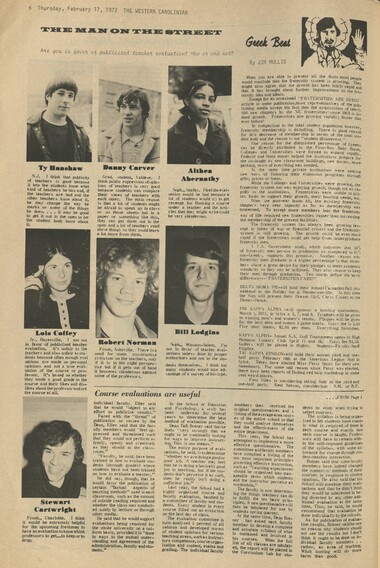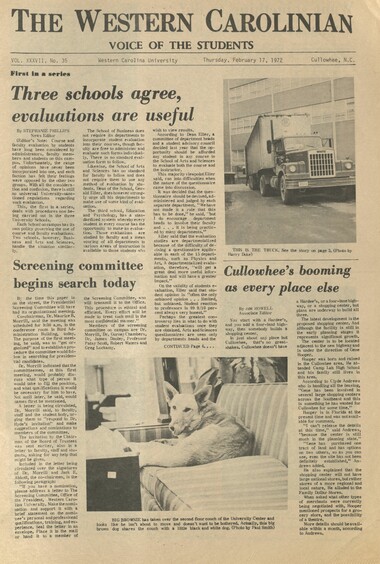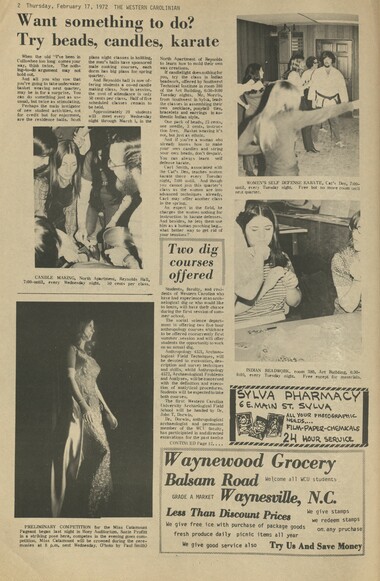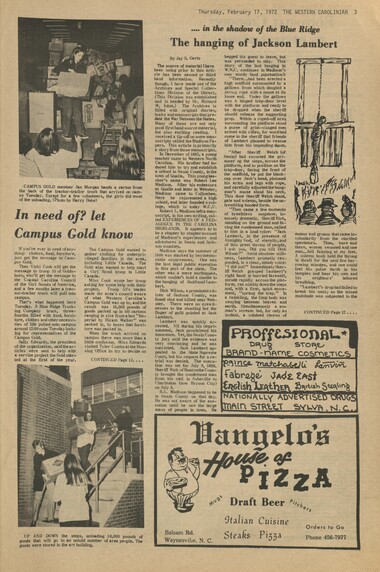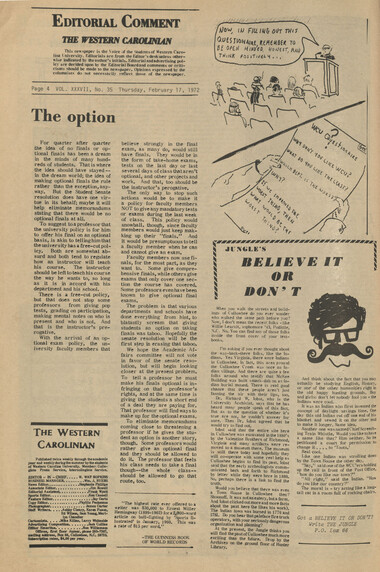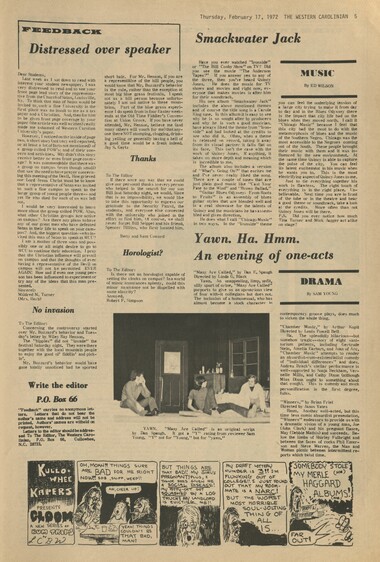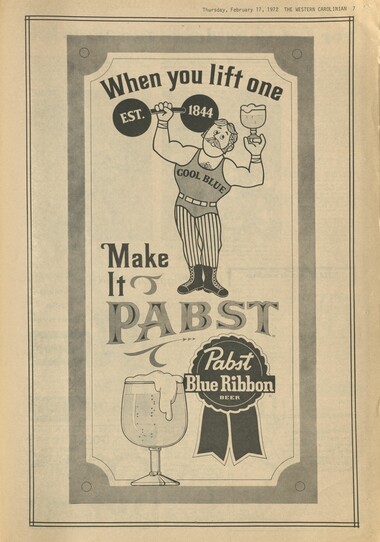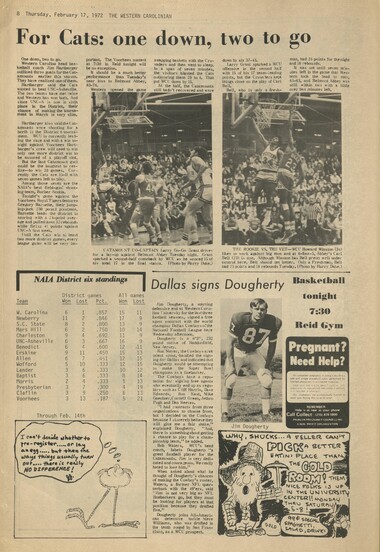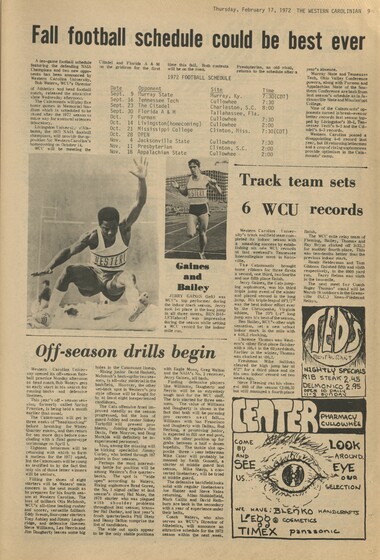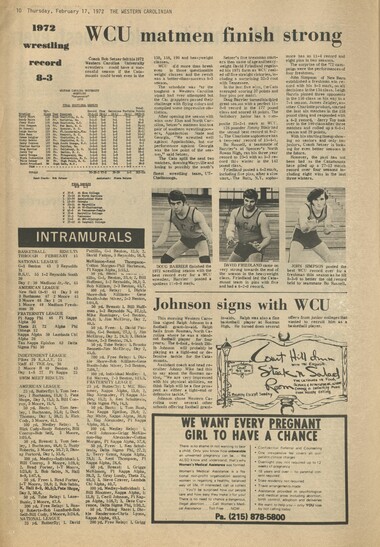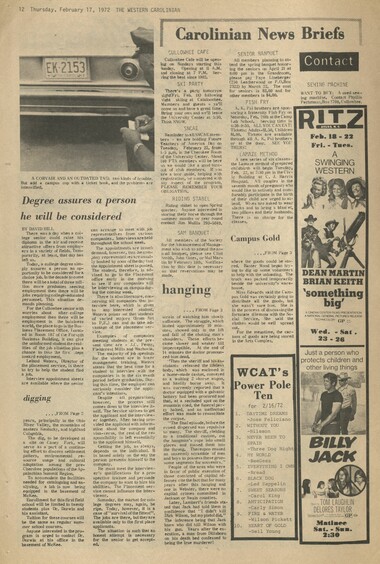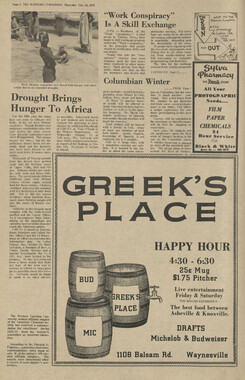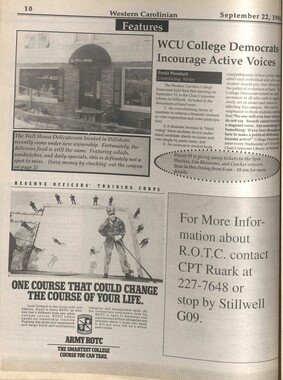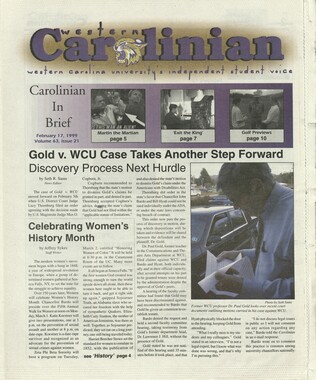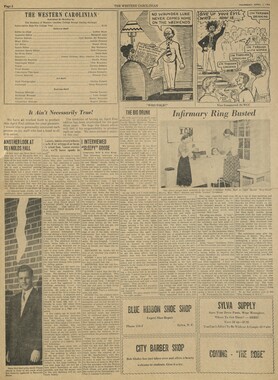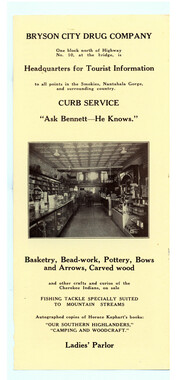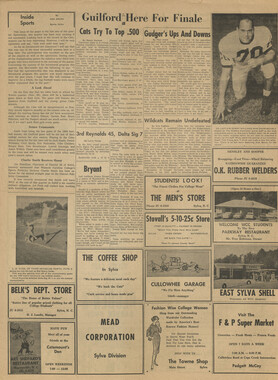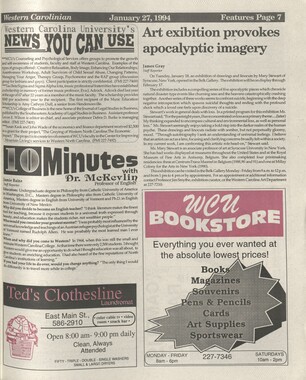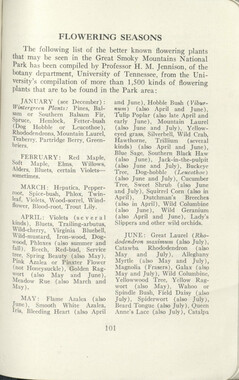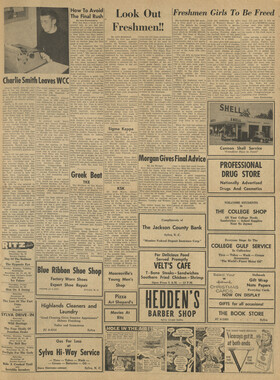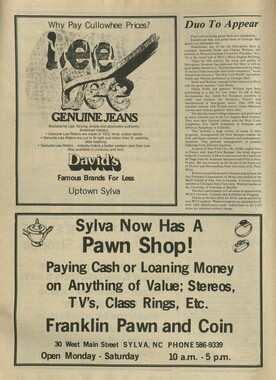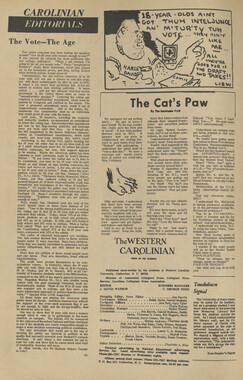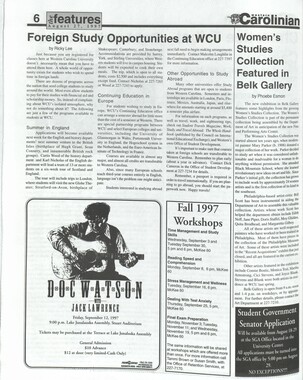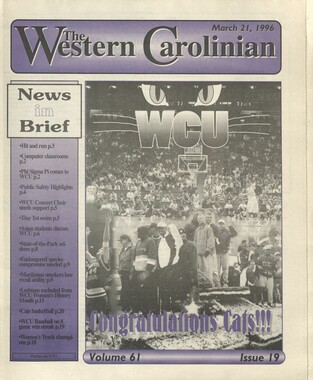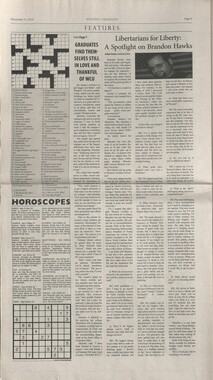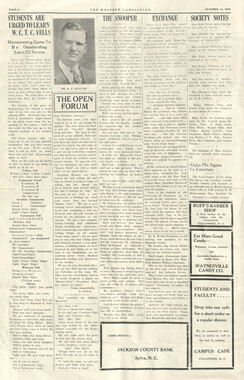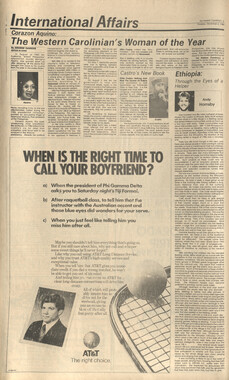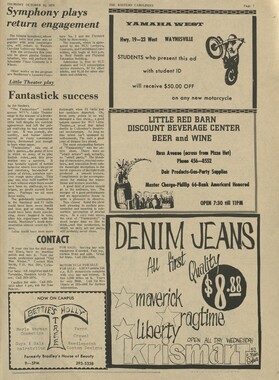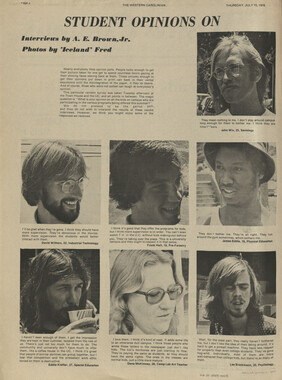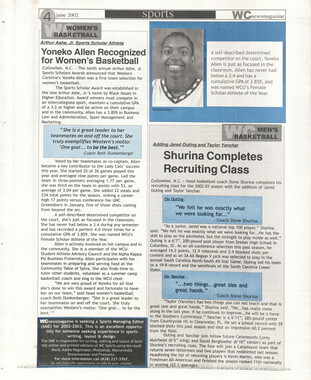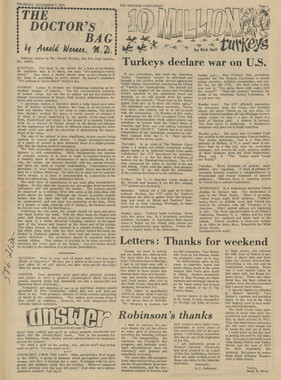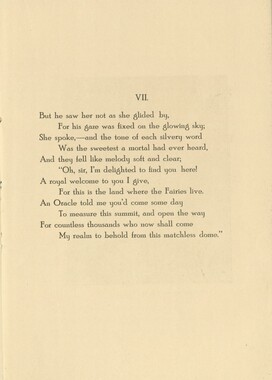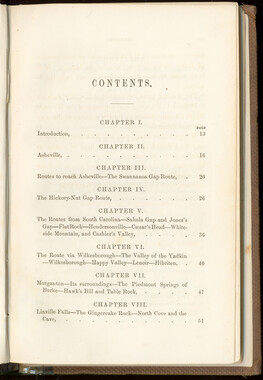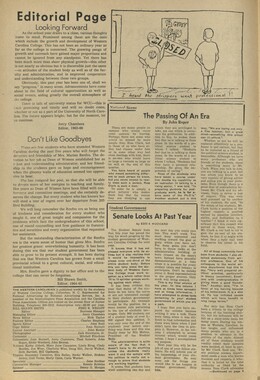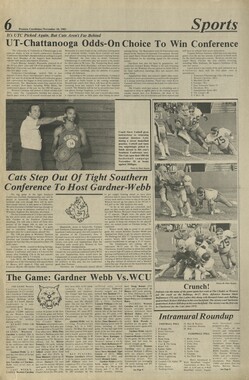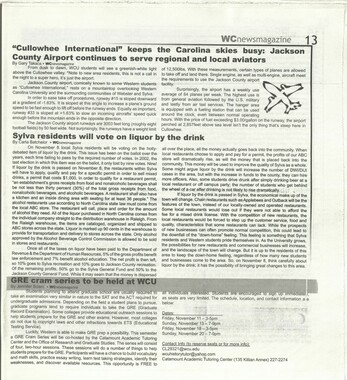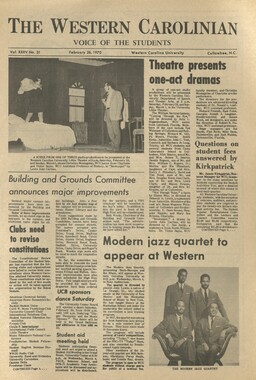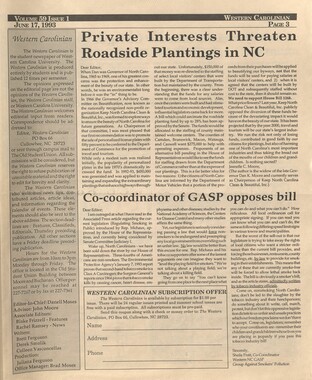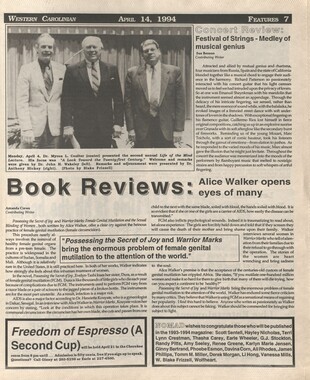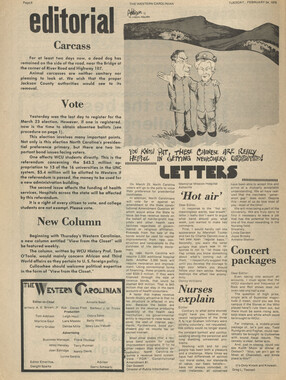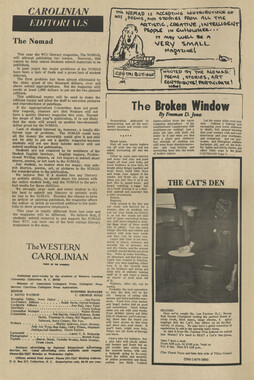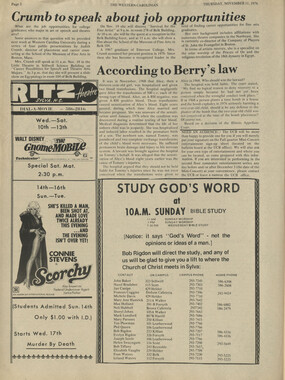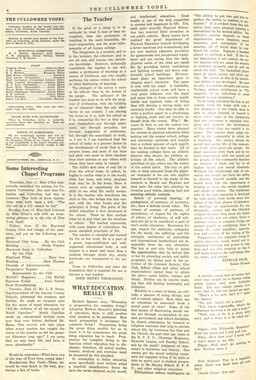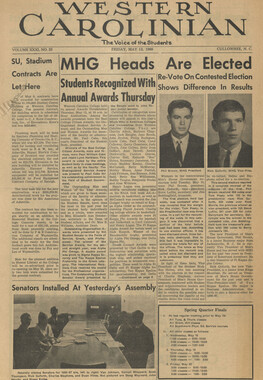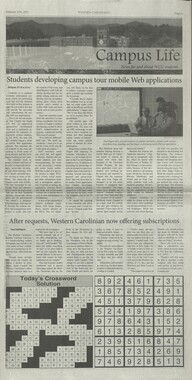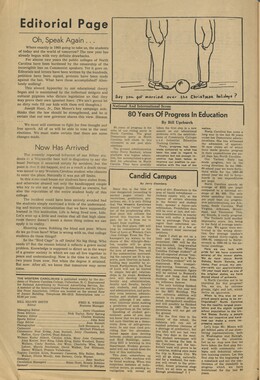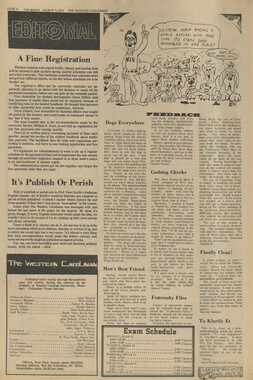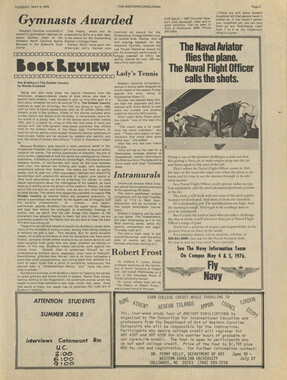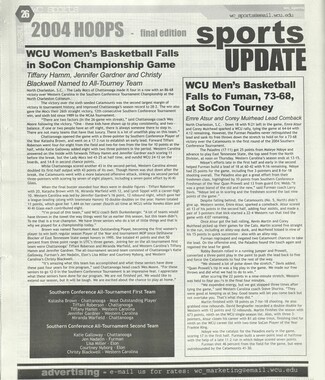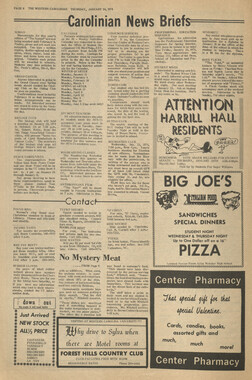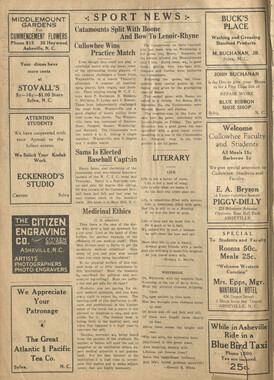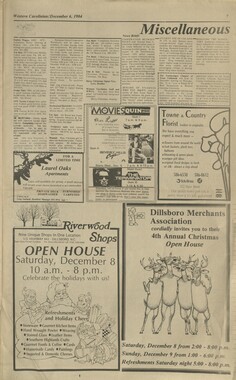Western Carolina University (20)
View all
- Canton Champion Fibre Company (2308)
- Cherokee Traditions (291)
- Civil War in Southern Appalachia (165)
- Craft Revival (1942)
- Great Smoky Mountains - A Park for America (2946)
- Highlights from Western Carolina University (430)
- Horace Kephart (941)
- Journeys Through Jackson (159)
- LGBTQIA+ Archive of Jackson County (85)
- Oral Histories of Western North Carolina (314)
- Picturing Appalachia (6873)
- Stories of Mountain Folk (413)
- Travel Western North Carolina (160)
- Western Carolina University Fine Art Museum Vitreograph Collection (129)
- Western Carolina University Herbarium (92)
- Western Carolina University: Making Memories (738)
- Western Carolina University Publications (2491)
- Western Carolina University Restricted Electronic Theses and Dissertations (146)
- Western North Carolina Regional Maps (71)
- World War II in Southern Appalachia (131)
University of North Carolina Asheville (6)
View all
- Allanstand Cottage Industries (62)
- Appalachian National Park Association (53)
- Bennett, Kelly, 1890-1974 (1463)
- Berry, Walter (76)
- Brasstown Carvers (40)
- Carver, George Washington, 1864?-1943 (26)
- Cathey, Joseph, 1803-1874 (1)
- Champion Fibre Company (233)
- Champion Paper and Fibre Company (297)
- Cherokee Indian Fair Association (16)
- Cherokee Language Program (22)
- Crowe, Amanda (40)
- Edmonston, Thomas Benton, 1842-1907 (7)
- Ensley, A. L. (Abraham Lincoln), 1865-1948 (275)
- Fromer, Irving Rhodes, 1913-1994 (70)
- George Butz (BFS 1907) (46)
- Goodrich, Frances Louisa (120)
- Grant, George Alexander, 1891-1964 (96)
- Heard, Marian Gladys (60)
- Kephart, Calvin, 1883-1969 (15)
- Kephart, Horace, 1862-1931 (313)
- Kephart, Laura, 1862-1954 (39)
- Laney, Gideon Thomas, 1889-1976 (439)
- Masa, George, 1881-1933 (61)
- McElhinney, William Julian, 1896-1953 (44)
- Niggli, Josephina, 1910-1983 (10)
- North Carolina Park Commission (105)
- Osborne, Kezia Stradley (9)
- Owens, Samuel Robert, 1918-1995 (11)
- Penland Weavers and Potters (36)
- Roberts, Vivienne (15)
- Roth, Albert, 1890-1974 (142)
- Schenck, Carl Alwin, 1868-1955 (1)
- Sherrill's Photography Studio (2565)
- Southern Highland Handicraft Guild (127)
- Southern Highlanders, Inc. (71)
- Stalcup, Jesse Bryson (46)
- Stearns, I. K. (213)
- Thompson, James Edward, 1880-1976 (226)
- United States. Indian Arts and Crafts Board (130)
- USFS (683)
- Vance, Zebulon Baird, 1830-1894 (1)
- Weaver, Zebulon, 1872-1948 (58)
- Western Carolina College (230)
- Western Carolina Teachers College (282)
- Western Carolina University (2008)
- Western Carolina University. Mountain Heritage Center (18)
- Whitman, Walt, 1819-1892 (10)
- Wilburn, Hiram Coleman, 1880-1967 (73)
- Williams, Isadora (3)
- Cain, Doreyl Ammons (0)
- Crittenden, Lorraine (0)
- Rhodes, Judy (0)
- Smith, Edward Clark (0)
- Appalachian Region, Southern (2569)
- Asheville (N.C.) (1923)
- Avery County (N.C.) (26)
- Blount County (Tenn.) (195)
- Buncombe County (N.C.) (1672)
- Cherokee County (N.C.) (283)
- Clay County (N.C.) (555)
- Graham County (N.C.) (236)
- Great Smoky Mountains National Park (N.C. and Tenn.) (519)
- Haywood County (N.C.) (3569)
- Henderson County (N.C.) (70)
- Jackson County (N.C.) (4912)
- Knox County (Tenn.) (35)
- Knoxville (Tenn.) (13)
- Lake Santeetlah (N.C.) (10)
- Macon County (N.C.) (420)
- Madison County (N.C.) (215)
- McDowell County (N.C.) (39)
- Mitchell County (N.C.) (132)
- Polk County (N.C.) (35)
- Qualla Boundary (982)
- Rutherford County (N.C.) (76)
- Swain County (N.C.) (2182)
- Transylvania County (N.C.) (270)
- Watauga County (N.C.) (12)
- Waynesville (N.C.) (86)
- Yancey County (N.C.) (72)
- Aerial Photographs (3)
- Aerial Views (60)
- Albums (books) (4)
- Articles (1)
- Artifacts (object Genre) (228)
- Bibliographies (1)
- Biography (general Genre) (2)
- Cards (information Artifacts) (38)
- Clippings (information Artifacts) (191)
- Copybooks (instructional Materials) (3)
- Crafts (art Genres) (622)
- Depictions (visual Works) (21)
- Design Drawings (1)
- Drawings (visual Works) (185)
- Envelopes (73)
- Exhibitions (events) (1)
- Facsimiles (reproductions) (1)
- Fiction (general Genre) (4)
- Financial Records (12)
- Fliers (printed Matter) (67)
- Glass Plate Negatives (381)
- Guidebooks (2)
- Internegatives (10)
- Interviews (815)
- Land Surveys (102)
- Letters (correspondence) (1013)
- Manuscripts (documents) (618)
- Maps (documents) (177)
- Memorandums (25)
- Minutes (administrative Records) (59)
- Negatives (photographs) (6090)
- Newsletters (1290)
- Newspapers (2)
- Notebooks (8)
- Occupation Currency (1)
- Paintings (visual Works) (1)
- Pen And Ink Drawings (1)
- Periodicals (193)
- Personal Narratives (10)
- Photographs (12976)
- Plans (maps) (1)
- Poetry (5)
- Portraits (4568)
- Postcards (329)
- Programs (documents) (181)
- Publications (documents) (2443)
- Questionnaires (65)
- Relief Prints (26)
- Sayings (literary Genre) (1)
- Scrapbooks (282)
- Sheet Music (2)
- Slides (photographs) (402)
- Songs (musical Compositions) (2)
- Sound Recordings (796)
- Specimens (92)
- Speeches (documents) (18)
- Tintypes (photographs) (8)
- Transcripts (322)
- Video Recordings (physical Artifacts) (23)
- Text Messages (0)
- A.L. Ensley Collection (275)
- Appalachian Industrial School Records (7)
- Appalachian National Park Association Records (336)
- Axley-Meroney Collection (2)
- Bayard Wootten Photograph Collection (20)
- Bethel Rural Community Organization Collection (7)
- Blumer Collection (5)
- C.W. Slagle Collection (20)
- Canton Area Historical Museum (2110)
- Carlos C. Campbell Collection (462)
- Cataloochee History Project (64)
- Cherokee Studies Collection (4)
- Daisy Dame Photograph Album (5)
- Daniel Boone VI Collection (1)
- Doris Ulmann Photograph Collection (112)
- Elizabeth H. Lasley Collection (1)
- Elizabeth Woolworth Szold Fleharty Collection (4)
- Frank Fry Collection (95)
- George Masa Collection (173)
- Gideon Laney Collection (452)
- Hazel Scarborough Collection (2)
- Hiram C. Wilburn Papers (28)
- Historic Photographs Collection (236)
- Horace Kephart Collection (861)
- Humbard Collection (33)
- Hunter and Weaver Families Collection (1)
- I. D. Blumenthal Collection (4)
- Isadora Williams Collection (4)
- Jesse Bryson Stalcup Collection (47)
- Jim Thompson Collection (224)
- John B. Battle Collection (7)
- John C. Campbell Folk School Records (80)
- John Parris Collection (6)
- Judaculla Rock project (2)
- Kelly Bennett Collection (1482)
- Love Family Papers (11)
- Major Wiley Parris Civil War Letters (3)
- Map Collection (12)
- McFee-Misemer Civil War Letters (34)
- Mountain Heritage Center Collection (4)
- Norburn - Robertson - Thomson Families Collection (44)
- Pauline Hood Collection (7)
- Pre-Guild Collection (2)
- Qualla Arts and Crafts Mutual Collection (12)
- R.A. Romanes Collection (681)
- Rosser H. Taylor Collection (1)
- Samuel Robert Owens Collection (94)
- Sara Madison Collection (144)
- Sherrill Studio Photo Collection (2558)
- Smoky Mountains Hiking Club Collection (616)
- Stories of Mountain Folk - Radio Programs (374)
- The Reporter, Western Carolina University (510)
- Venoy and Elizabeth Reed Collection (16)
- WCU Gender and Sexuality Oral History Project (32)
- WCU Mountain Heritage Center Oral Histories (25)
- WCU Oral History Collection - Mountain People, Mountain Lives (71)
- WCU Students Newspapers Collection (1923)
- Western North Carolina Tomorrow Black Oral History Project (69)
- William Williams Stringfield Collection (2)
- Zebulon Weaver Collection (109)
- African Americans (390)
- Appalachian Trail (35)
- Artisans (521)
- Cherokee art (84)
- Cherokee artists -- North Carolina (10)
- Cherokee language (21)
- Cherokee pottery (101)
- Cherokee women (208)
- Church buildings (189)
- Civilian Conservation Corps (U.S.) (111)
- College student newspapers and periodicals (2012)
- Dams (107)
- Dance (1023)
- Education (222)
- Floods (61)
- Folk music (1015)
- Forced removal, 1813-1903 (2)
- Forest conservation (220)
- Forests and forestry (1184)
- Gender nonconformity (4)
- Great Smoky Mountains National Park (N.C. and Tenn.) (181)
- Hunting (45)
- Landscape photography (25)
- Logging (119)
- Maps (83)
- Mines and mineral resources (8)
- North Carolina -- Maps (18)
- Paper industry (38)
- Postcards (255)
- Pottery (135)
- Railroad trains (72)
- Rural electrification -- North Carolina, Western (3)
- School integration -- Southern States (2)
- Segregation -- North Carolina, Western (5)
- Slavery (5)
- Sports (452)
- Storytelling (243)
- Waterfalls -- Great Smoky Mountains (N.C. and Tenn.) (66)
- Weaving -- Appalachian Region, Southern (280)
- Wood-carving -- Appalachian Region, Southern (328)
- World War, 1939-1945 (173)
Western Carolinian Volume 37 Number 35
Item
Item’s are ‘child’ level descriptions to ‘parent’ objects, (e.g. one page of a whole book).
-
-
6 Thursday, February 17, 1972 THE WESTERN CAROLINIAN Ate you in favoh. oi publicized teacheA evaluation? Nlui on vMi) not? T> HanNhaw N.J. I think that publicity of teachers is good because it lets the students know what kind of teachers he has and, if the teachers are bad and the other teachers know about it, he may change the way he marks or some of the things he does. ... it may be good to get it out in the open to let the student body know about it, n«»> Carver Grad. student, Valdese. I think public expression of opinions of teachers b> very good because students can compare their views of teachers with each other. The main reason is that a lot of students might be afraid to speak up in class or on those sheets but in a paper or something like this, they can get them out in the open and a lot of teachers read these things so they could learn a lot more from them. Althea Abernathy Soph., Shelby. I feel the evaluation would be bad because a lot of students would try to get revenge for flunking a course under a teacher and the articles that they might write could be very slanderous. Lois Coffey Jr.. Hayesville. I am not in favor of publicized teacher evaluation. It's unfair to the teachers and also unfair to students because often enough eval nations are made on personal opinions and not a true eval" uation of the course or professor. It's based on whether they made a good grade in the course and their likes and dislikes about the professor and not the course at all. Robert N< Frosh, Asheville. There is a need for some constructive criticism on the teachers, only if it is in the right perspec tive but if it gets out of hand it becomes slanderous against some of the professors. Bill Lodgins •Soph., Winston-Salem, I'm not in favor of teacher evaluations unless done by proper authorities and not by the students themselves. I think too many students would take ad= vantage of a survey of this type. Course evaluations are useful Stewart Cartwrlgbt Frosh., Charlotte. I think it would be extremely helpful for the upcoming freshmen to have an evaluation to know which professors to get...to keep or to drop. individual faculty, Eller said that he would "object to any effort to publicize results." Faced with the "threat" of publication or review by the Dean, Eller said that the faculty members would "feel oppressed and threatened such that they could not perform a s freely, openly and creatively as they should in the classroom." "Faculty, he said, have been trained in how to evaluate students (through grades) where students have not been trained on how to evaluate a teacher." He did say, though, that he would favor the publication of certain "factual aspects of teaching methods" used in each classroom, such as the amount of outside reading required and whether the class was conducted solely by lecture or through other media. He said that he would support evaluations being required for the whole university on a uniform basis, provided it is "done in ways to the mutual understanding and agreement of the administration, faculty and students." In the School of Education and Psychology, a »uiy has been underway for several years to determine the best method of evaluation possible. Dean Taft Bonier said that he feels "very strongly that we ought to be continually looking for ways to Improve instruct ing. This :.s one means." The entire purpose of evaluations, he said, is to determine "whether we aredoingagoodor poor job. A teacher may feel that he is doing a basically good job in teaching, but if the students don't perceive it as such, then he really isn't doing a sufficient job," last year, the School had a highly organized course and faculty evaluation, handled by a committee of faculty and students. Every student in every course filled out an evaluation on the last day of class. The evaluation committee in turn analyzed 5 percent of all returns and developed norms of student opinions for various teaching areas, suchas instructors competence, course organization and content, exams and grading. The individual faculty Gud^ut By JIM MULLI-S When vou are able to present all the facts most people would conclude that the fraternity system is growing. Thev might also agree that the growth has been fairly rapid and that it has brought about further improvement to the fra- rernitv idea and ideals. Except for an occasional "FRATERNITIES ARE DYING" article in some publication,most representatives of the pub- lishing media accept the fact that the aequisistion of nearly 600 new chapters by the NIC fraternities-since 1963 is indeed growth. Fraternities are growing rapidly; faster that ever before! In comparison to the total student population however fraternitv membership is dwindling. There is good reason for this decrease of membership in terms of the total student body and the reason is not "student disinterest." One reason for the diminished percentage of Greeks can be directly attributed to the Post-War Baby Boom, Colleges and Universities were forced to expand rapidly. Federal and State money helped the institutions prepare for the onslaught as new classroom buildings, new dorms, more parking, more of everything was needed. At the same time private institutions were seeking new ways of financing their expansion programs through gifts, grants or loans. While the Colleges and Universities were growing, the fraternity system too was enjoying growth, though not as ra^ pidly as the institutions. Fraternities were unable to gain tax funds to support their growth, their housing needs, etc. When tne post-war boom hit, the existing fraternity chapters were near capacity as far as membership was concerned. To accept more members into the fraternity way of life required new fraternities rather than increasing the membership of the present facilities. The fraternity system has always been growing (except in times of war or financial crisis) and the fraternity system is -.till growing. The growth co.ild be even more rapid if the fraternities could get help from undergraduate fraternity men, A I'.S. Government study, which indicates that 59% of fraternity men persist to graduation as compared to i'2% non-Greek-, supports this premise. Another reason why fraternity men graduate in a higher percentage is thai members share a great desire for their pledges to meet academic standards so they can be initiated. They also choose to keep their men through graduation. Two words define the basic difference—- "FRATERNITIES CARE!" DELTA SIGMA PHf-vvill hold their annual CarnationBall this weekend at the Holiday Inn in Hendersonv ille. At this time the Sigs will present their Bream Girl, Chris Conley at the Dinner-Dance. PHI KAPPA ALPHA -will sponsor a bowling tournament, March I, 197:', in Sylva a 3, 7, and 9. Trophies will be given to winning men's and women's teams, Plaques will be given for the best men and women 3 game totals. Entry fee is .3.00 Five man teams, S2.00 per man. Everyihing furnished, KAPPA ALPHA- Annual K.A. Golf Tournament opens at High Hampton Country Club April 15 and 16. Entry fee $5.50. Golfers will be placed in flights, Students-Fajulty-Staff Eligible, TAU KAPPA EPSILON'-will hold their annual yard and one- half party February 18th at the American Legion Hutt in Sylva, Tekes have elected Miss Patsy Short for their new Sweetheart. For some odd reason since Patsy was elected, there have been reports of finding red hair curled-tip in some real weird places, Fons Giles is considering taking Judy to the yard and one-half party, Kent Nelson, considering: S.M. or B.P. members then received the original questionnaires and a listing of theaveragearea scores of the entire school so that they could analyze themselves and the effectiveness of the entire department. This year, the School has attempted to implement a more effective questionnaire. The committee and faculty members have compiled a listing of the ten most important principles governing effective instruction, suchas "Learning experiences should be organized into manageable tasks which students and the instructor perceive as worthwhile.'' The faculty is now determining the things teachers can do to fulfill the ten basic principles. A new questionnaire will then be tabulated for use by students spring quarter. At the same time, Dean Bot- ner has asked each faculty member to dev elop a complete and accurate syllabus of what is contained and involved in his courses. When the full list of all classes are tabulated, the report will be placed in the Curriculum Lab for stu- . . . .FROM Page 1 dents to study when trying to select courses. The syllabus is being organized to let students know exactly what is required of them in each course and exactly how each course is taught. Professors will have to remain with in the self-imposed guidelines of the syllabus, with some a I lowance for change through student-teacher interaction, Botner said that some faculty members have indeed changed the content or methods of their courses in response to student opinions. He also said that his School will continue their evaluations and that he didn't think they would be interested in being diverted by any other additional evaluation at the same time. Thus, he said, he would recommend that evaluation be done individually by the schools. As for publication of evaluation results, Botner said he saw no reason why students should not see the results but I don t think it ought to be done on individual faculty members . . rather, an area of teaching. Witch hunting will do more harm than good.
Object
Object’s are ‘parent’ level descriptions to ‘children’ items, (e.g. a book with pages).
-
The Western Carolinian is Western Carolina University's student-run newspaper. The paper was published as the Cullowhee Yodel from 1924 to 1931 before changing its name to The Western Carolinian in 1933.
-
